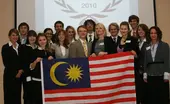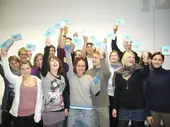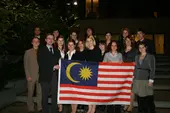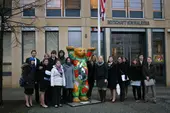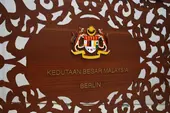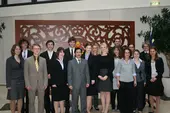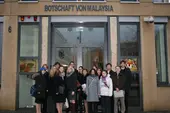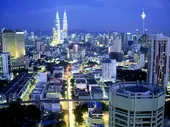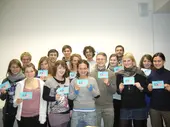Unser Land
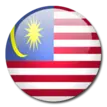
Gestatten, Malaysia!
Malaysia befindet sich in Südostasien und besteht aus zwei durch das Südchinesische Meer getrennten Landesteilen, der malaiischen Halbinsel im Westen und Teilen der Insel Borneo im Osten. Malaysia ist ein wichtiger Handels-Partner fϋr Deutschland und ein bedeutender Vertreter der islamischen Welt. Im wirtschaftlichen Bereich steht Malaysia für Modernität, Sicherheit und ist eines des Gründungsmitglieder von ASEAN. Malaysia ist ein wichtiger Akteur in der UN. Die wichtigsten Betätigungsfelder sind dabei Menschenrechte, globale Abrüstung und eine Reform der UN. Malaysia ist ein Beispiel für eine islamische Gesellschaft, die ihren multikulturellen Reichtum zu ihrem Vorteil nutzt. In Malaysia leben Muslime, Hinduisten, Buddhisten und Christen friedlich zusammen. Neben der indigenen Bevölkerung gibt es hauptsächlich chinesische und indische Migranten. Unsere Freude darϋber, dass wir dieses besondere Land bei der Simulation vertreten dϋrfen, lässt sich am besten durch die malaysische Redensart ausdrϋcken:
„Bersekutu Bertambah Mutu“ „Einheit ist Stärke“
Unsere Committees
General Assembly First Committee (GA1)
- Conventional weapons surplus stockpiles
- The role of science and technology in the context of international security and disarmament
- Disarmament, demobilization, and demining: prerequisites for peace in Africa
General Assembly Second Committee (GA2)
- Assuring developing countries’ sovereignty over their natural resources
- External debt and development: Towards a durable solution to the debt problems of developing countries
- Promoting sustainable development practices in transnational corporations
General Assembly Third Committee (GA3)
- Human rights, cultural integrity, and diversity
- Promoting alternative development strategies to combat the world drug trade
- Protection of human rights and fundamental freedoms while countering terrorism
Human Rights Council (HRC)
- Climate change as a human rights issue
- The human rights situation in Palestine and other occupied Arab territories
- Food security and the right to food
Economic and Social Council Plenary (ECOSOC)
- Providing economic and social services for victims of conflict for internally displaced persons and refugees
- Addressing the humanitarian needs of Haiti’s displaced
- Sexual orientation, gender identity and international human rights
Commission on the Status of Women (CSW)
- Improving access to health services for women in conflict and post-conflict situations
- Elimination of barriers to justice for women
- Women, the girl child, and HIV/AIDS
Economic and Social Commission for Asia and the Pacific (ESCAP)
- Promoting gender equality as a means to combat HIV incidence in the Asia and Pacific region
- Strengthening development policies for social inclusion
- Achieving energy security through energy diversity
United Nations Environment Programme (UNEP)
- Mid-term review of the UN’s “Water for Life” Decade
- Protecting biodiversity in a changing climate
- Creating more resource-efficient cities
World Intellectual Property Organization (WIPO)
- Pharmaceutical patents and the fight against HIV/AIDS indeveloping nations
- Differentiated intellectual property rights for environmental and climate technologies
- Patenting life: Intellectual property and complex structures
Nuclear Non-Proliferation Treaty Review Conference (NPT)
- Practical measures to implement Article VI
- Nuclear security as the “Fourth Pillar” of the NPT
- Article X and deterring withdrawal from the NPT
